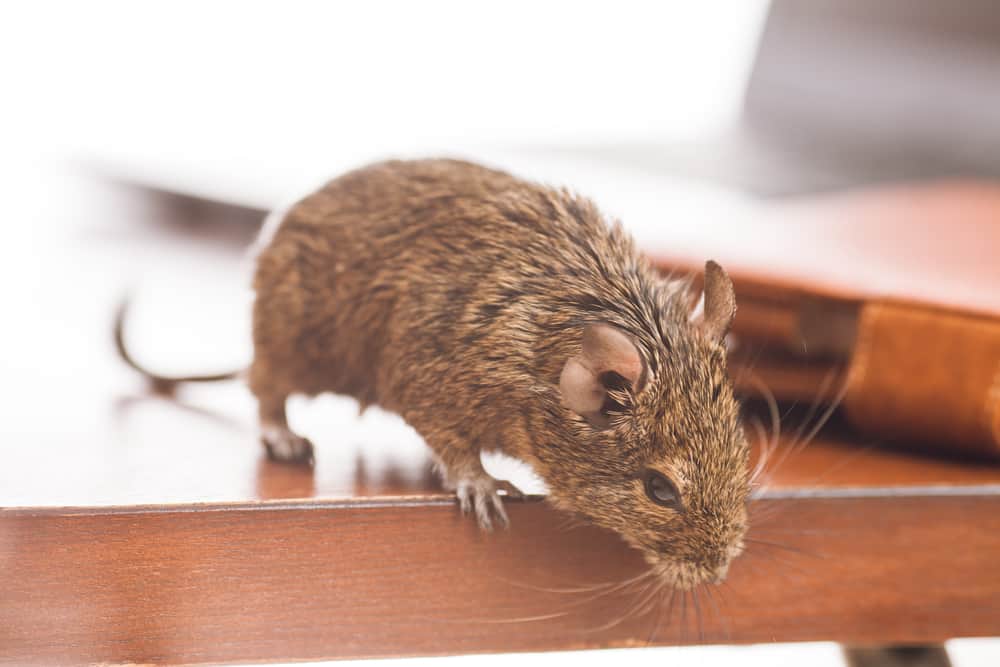You’re probably familiar with the signs of a rodent infestation: gnawed insulation or wiring, droppings and, perhaps, even the unpleasant odor of urine. Did you know, though, that there are some warning signs you can catch before you ever see the rodents or notice evidence of their activity?

Mice and rats make noise, and this can often be one of the first signs of an infestation. What types of sounds do rodents make, and what should you do if you think they’re in your house? Read on to find out.
What Do Rodents Sound Like?
If you’re going to be on guard for unwelcome guests in your home, you need to know what sounds rats and mice make. Any of the following may mean you have some extra visitors:
- Scratching – This may indicate rodents are climbing, crawling or digging
- Gnawing – Mice and rats are constantly chewing
- Scurrying – You’re likely to hear this as the rodents move from one area in your home to another
- Squeaking – Chirps and squeaks are just one way mice communicate with one another. It’s important to note, though, that rats have been known to communicate at pitches that humans cannot hear.
Mice and rats are nocturnal, so if they’re in your home, you’ll most likely hear their sounds at night or right as you’re heading to bed.
However, rodents aren’t the only animals that may make or cause noise in your home. Sounds during the day may indicate a squirrel infestation, as these animals are diurnal. Raccoons and opossums have also been known to move into houses.
Where are the Rodents Hiding in Your Home?
There are several common places in your home where you may find rodents:
- Walls
- Attic
- Crawl space
- Laundry room
- Around the oven
Rodents can enter your home in a variety of ways. Mice, for example, are so small, they can fit through an opening the size of a dime. They’re also great climbers. When it comes to rats, they can easily fit through a quarter-sized hole. Roof rats, in particular, are known to access houses via tree branches or vines and ivy that grow nearby.
Some common entry points and ways mice and rats may enter your house and find their way into your walls and attic include:
- Utility pipe and wire entries
- Deteriorating siding
- Cracks in the foundation
- Weep holes (structural holes in brick walls designed to allow built-up water to escape)
- Gaps in building materials
- Poorly sealed door and window frames
- Roof vents and chimney pipes
What Should You Do if There are Rodents in Your Home?
There are a few steps you can take to help prevent mice and rats from entering your home:
- Inspect your home for holes and entry points, or have it inspected by a professional
- Seal entry points with wire mesh or quick-drying cement – rodents can easily chew through caulk
- Repair any leaky outdoor faucets so you don’t provide the rodents with a water source
- Keep trees, vining plants and other branches trimmed away from your home
- Tightly seal all garbage cans and trash bags
- Store pet food, grains and meat in tightly sealed containers
If rats do find their way inside your home, no need to worry. If you have an infestation, contact a rodent control professional. The professionals at Terminix® can help. Learn more about our guarantee and what we can do for you.




